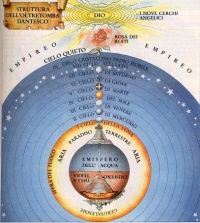Main Page: Difference between revisions
No edit summary |
m (Gem of the Day is implemented) |
||
| Line 6: | Line 6: | ||
<td width=5%> | <td width=5%> | ||
</td> | </td> | ||
<td width=45%> | <td width=45%> | ||
<font size="4">'''H. P. Blavatsky Gem of the Day'''</font> | <font size="4">'''H. P. Blavatsky Gem of the Day'''</font> | ||
<br> | <br> | ||
''' {{CURRENTDAYNAME}}, [[{{CURRENTMONTHNAME}} {{CURRENTDAY}}]], {{CURRENTYEAR}} | ''' {{CURRENTDAYNAME}}, [[{{CURRENTMONTHNAME}} {{CURRENTDAY}}]], {{CURRENTYEAR}}''' | ||
{{Gem of the day}} | |||
</td> | </td> | ||
<td width=5%> | <td width=5%> | ||
</td> | </td> | ||
Revision as of 07:56, 26 October 2023
 |
H. P. Blavatsky Gem of the Day
The self is hidden in all beings, and does not shine forth; but it is seen by subtle seers, through their sharp and subtle intellect. – “Katha-Upanishad”, 1:3:12 |
All groups and individuals who respect the work of Helena Petrovna Blavatsky and her associates are invited to participate in building this wiki into a base of research for serious students everywhere. Our aim is to provide a platform for people interested in Theosophy and the Theosophical Movement to collaborate in assembling information that is accurate, well-documented, and helpful. If you want to contribute by creating articles or editing the existing ones contact the administrators, or see the Community Portal for more information.
|
Mahatma Letters Portal
Letters written by the Mahatmas are a rich resource to study the Ancient Wisdom, Theosophy. Texts of the letters with images and commentaries are available for these published collections of letters: |
Blavatsky Portal
Helena Petrovna Blavatsky was co-founder of the Theosophical Society in 1875 with Henry Steel Olcott, William Quan Judge, and others. They brought the ancient teachings called Theosophy to the modern world.
|
|
Categories in the Theosophy Wiki Categories in the Theosophy Wiki help to group together people, places, and concepts that have some common characteristic. These are the major groups of categories:
|
Featured Article
Life after Death is a topic of perpetual interest. According to the Theosophical teachings after the death of the body, consciousness undergoes a series of transformations. The tendencies, emotions, thoughts, memories, and aspirations that were part of the personality are sorted out. Anything that belonged to the entirely personal and selfish aspect is discarded, while all that was of a generous or unselfish nature is preserved and assimilated by the soul. In the writings of H. P. Blavatsky and the Masters of Wisdom the most frequent description of the different stages after physical death include: a) kamaloka, b) gestation period, c) devachan, and d) reincarnation. |
This Web site is made possible by generous grants from The Kern Foundation and support from the Theosophical Society in America.


